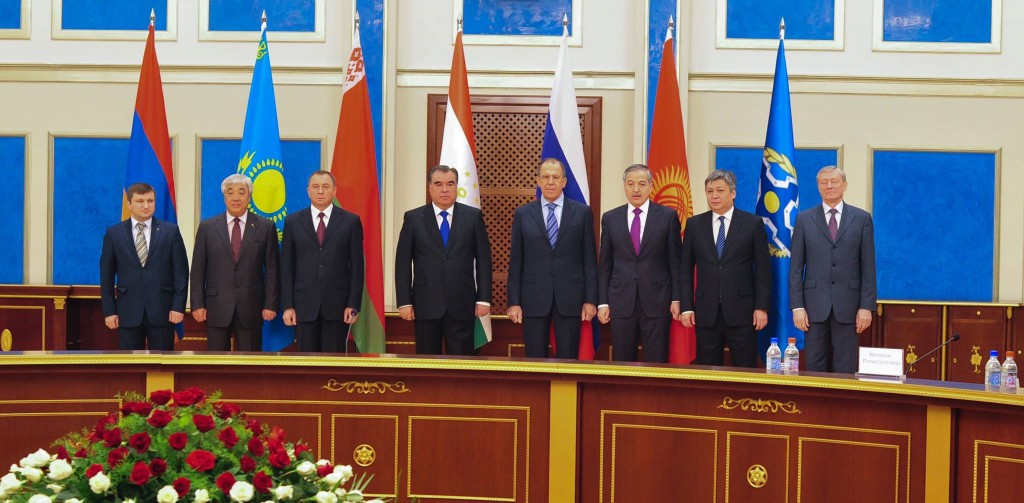DUSHANBE – Minister of Foreign Affairs of Kazakhstan Erlan Idrissov took part in the meeting of the Collective Security Treaty Organisation (CSTO) Council of Foreign Ministers in Tajikistan’s capital, Dushanbe, on April 2, where the discussions centred heavily on the situation in neighbouring Afghanistan.
The foreign ministers of the CSTO member states first met in a narrow format to discuss topical issues of international politics and prospects for the development of the organisation in the near future.
The talks continued in an extended format with the participation of the Organisation for Security and Cooperation in Europe (OSCE) chairperson-in-office, Serbian Deputy Prime Minister and Foreign Minister Ivica Dacic and head of the UN Regional Centre for Preventive Diplomacy for Central Asia (UNRCCA) Miroslav Enca.
The participants exchanged views on intensifying cooperation between international and regional organisations, as well as on strengthening efforts to ensure security in Central Asia in light of developments in Afghanistan.
In his speech, Idrissov said that earlier in the day, the foreign ministers had paid special attention to the situations in Ukraine and Afghanistan. He stressed the exclusively peaceful nature of the organisation and its members’ commitment to solving all problems through constructive, peaceful and political means.
“It is necessary to note a qualitative change in the situation in Afghanistan, caused by the appearance of representatives of the so-called ‘Islamic State’ on its territory. It was agreed to deal with this situation, carry out careful analysis and develop a plan of action in order to prevent new, emerging security threats to our region in this connection,” Idrissov said.
He also congratulated Amanzhol Zhankuliyev of Kazakhstan on assuming the office of OSCE deputy secretary general for political affairs.
Following the talks, the CSTO foreign ministers approved a list of joint statements for 2015 and the plan of consultations for the CSTO member states’ representatives on foreign policy, security and defence for the second half of 2015 and the first half of 2016. The foreign ministers also adopted a statement in connection with the 70th anniversary of victory in Great Patriotic War of 1941-1945.
It was decided that the next meeting of the CSTO Council of Foreign Ministers will be held in early fall in Dushanbe, on the eve of the session of the CSTO Collective Security Council of the heads of state.
The CSTO foreign ministers were also received by President of Tajikistan Emomali Rahmon to discuss cooperation within the organisation, the regional situation and his government’s priorities.
Idrissov also met with his Tajik counterpart, Sirodjidin Aslov, to discuss a future visit by President Nursultan Nazarbayev to Tajikistan, as well as bilateral and international issues.
Tajikistan is an important political and economic partner of Kazakhstan in Central Asia, and relations between the two countries have great potential for development.
During the meeting, the sides noted their fruitful cooperation within international and regional structures and expressed satisfaction with the growth of trade. Between January and December 2014, the volume of trade amounted to $700.4 million (with exports at $518.9 million and imports at $181.5 million), 23 percent more than in 2013. Kazakhstan is Tajikistan’s second-biggest trade partner; Russia is first.
The two sides stressed that the main emphasis of bilateral relations should be strengthening cooperation in mining, non-ferrous metallurgy, mechanical engineering, energy, light industry, transport and communications, as well as agriculture.
Particular attention was also paid to the work of the Kazakh-Tajik Intergovernmental Commission for Economic Cooperation, a regular meeting of which was held in Dushanbe on March 19–20.
In Dushanbe, Idrissov also held talks with Ivica Dacic to discuss bilateral cooperation as well as cooperation within the OSCE given the upcoming 40th anniversary of the Helsinki Final Act.

